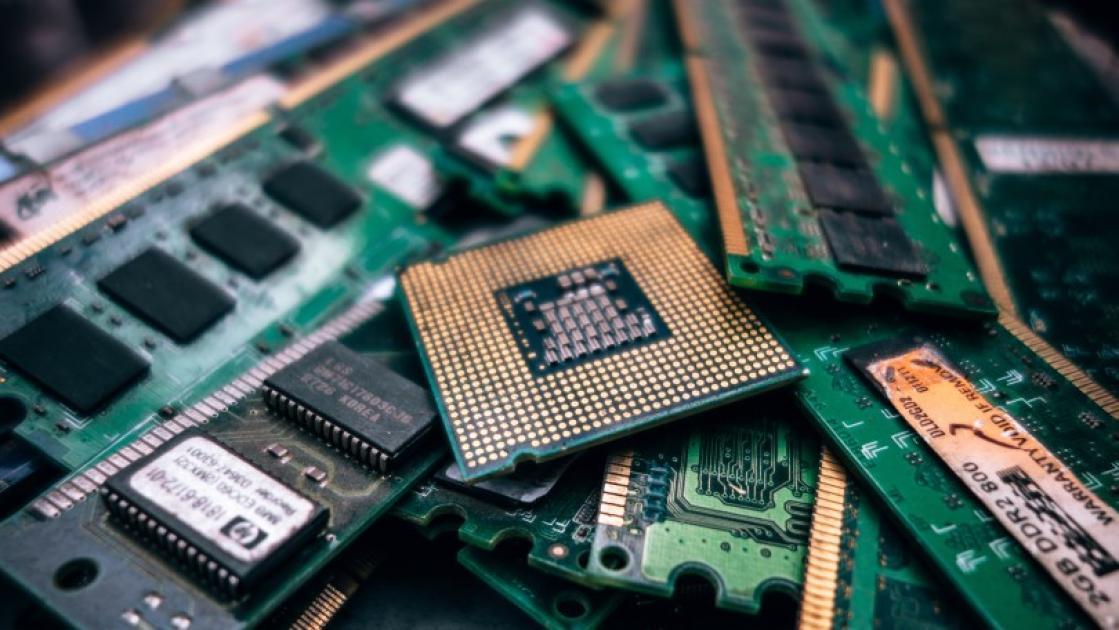Major chipmakers Taiwan, South Korea, and Japan expect to decouple with China in advanced industries involving sensitive technology due to concerns about Beijing's rapid military modernization.
The US is making a "Chip 4" alliance with Taiwan, South Korea, and Japan for a possible global chip crunch in case of a contingency between Taiwan and China.
The issue of supply chain resiliency was addressed after chip shortages exacerbated by Russia's invasion of Ukraine hit automobile and other industries hard.
Last month, the US Commerce Department announced a sweeping list of new export controls targeting China's chip and supercomputing industries.
The move could restrict China's ability to purchase and manufacture certain high-end chips used in military applications.
Although China manufactures some semiconductors, its foundries are not capable of manufacturing the most advanced logic chips. Beijing heavily relies on Taipei for advanced semiconductors needed to modernize its military, as well as software and tools from the United States.
The US has called on its allies to comply with their export controls to restrict China's access to advanced semiconductor technologies and impose similar restrictions, according to US Commerce Secretary Gina Raimondo.
Taiwan's Economy Minister Wang Mei-hua has said the restrictions only affect specific chips used in advanced fields such as supercomputing and artificial intelligence but not the larger world of chips for consumer electronics.
Taiwanese firms will abide by the US export controls, Wang said.
Russia's invasion of Ukraine and supply chain disruptions in the chip industry have sparked fears about the consequences if China invades Taiwan.



 Asian Stocks Slip as Tech Rout Deepens, Japan Steadies Ahead of Election
Asian Stocks Slip as Tech Rout Deepens, Japan Steadies Ahead of Election  Trump’s Inflation Claims Clash With Voters’ Cost-of-Living Reality
Trump’s Inflation Claims Clash With Voters’ Cost-of-Living Reality  Nvidia CEO Jensen Huang Says AI Investment Boom Is Just Beginning as NVDA Shares Surge
Nvidia CEO Jensen Huang Says AI Investment Boom Is Just Beginning as NVDA Shares Surge  TrumpRx Website Launches to Offer Discounted Prescription Drugs for Cash-Paying Americans
TrumpRx Website Launches to Offer Discounted Prescription Drugs for Cash-Paying Americans  Dollar Steadies Ahead of ECB and BoE Decisions as Markets Turn Risk-Off
Dollar Steadies Ahead of ECB and BoE Decisions as Markets Turn Risk-Off  Uber Ordered to Pay $8.5 Million in Bellwether Sexual Assault Lawsuit
Uber Ordered to Pay $8.5 Million in Bellwether Sexual Assault Lawsuit  Tencent Shares Slide After WeChat Restricts YuanBao AI Promotional Links
Tencent Shares Slide After WeChat Restricts YuanBao AI Promotional Links  Dow Hits 50,000 as U.S. Stocks Stage Strong Rebound Amid AI Volatility
Dow Hits 50,000 as U.S. Stocks Stage Strong Rebound Amid AI Volatility  Sony Q3 Profit Jumps on Gaming and Image Sensors, Full-Year Outlook Raised
Sony Q3 Profit Jumps on Gaming and Image Sensors, Full-Year Outlook Raised  SpaceX Pushes for Early Stock Index Inclusion Ahead of Potential Record-Breaking IPO
SpaceX Pushes for Early Stock Index Inclusion Ahead of Potential Record-Breaking IPO  Singapore Budget 2026 Set for Fiscal Prudence as Growth Remains Resilient
Singapore Budget 2026 Set for Fiscal Prudence as Growth Remains Resilient  Anthropic Eyes $350 Billion Valuation as AI Funding and Share Sale Accelerate
Anthropic Eyes $350 Billion Valuation as AI Funding and Share Sale Accelerate  Oil Prices Slide on US-Iran Talks, Dollar Strength and Profit-Taking Pressure
Oil Prices Slide on US-Iran Talks, Dollar Strength and Profit-Taking Pressure  SoftBank Shares Slide After Arm Earnings Miss Fuels Tech Stock Sell-Off
SoftBank Shares Slide After Arm Earnings Miss Fuels Tech Stock Sell-Off  Sam Altman Reaffirms OpenAI’s Long-Term Commitment to NVIDIA Amid Chip Report
Sam Altman Reaffirms OpenAI’s Long-Term Commitment to NVIDIA Amid Chip Report  Washington Post Publisher Will Lewis Steps Down After Layoffs
Washington Post Publisher Will Lewis Steps Down After Layoffs  TSMC Eyes 3nm Chip Production in Japan with $17 Billion Kumamoto Investment
TSMC Eyes 3nm Chip Production in Japan with $17 Billion Kumamoto Investment 































